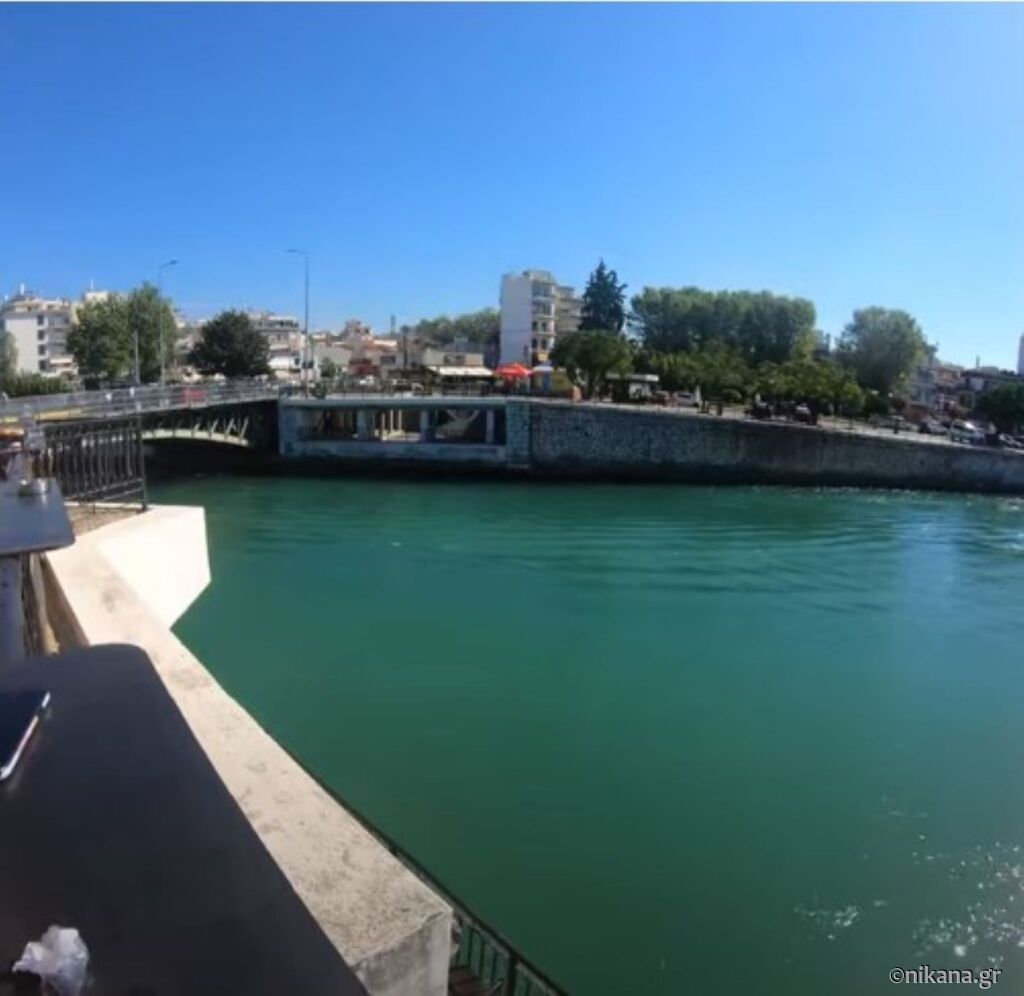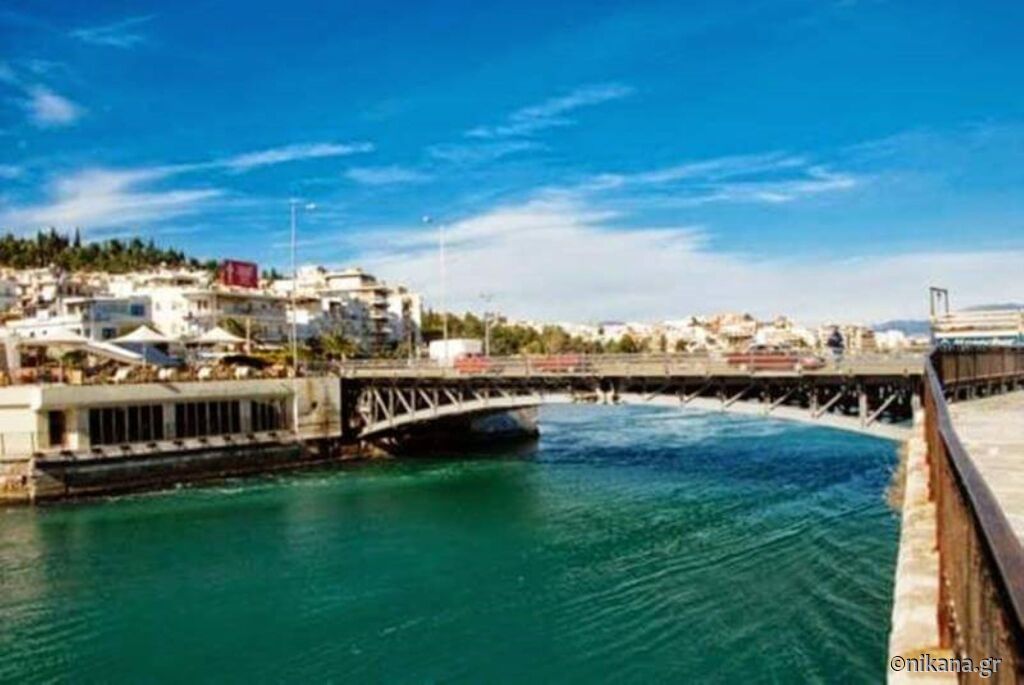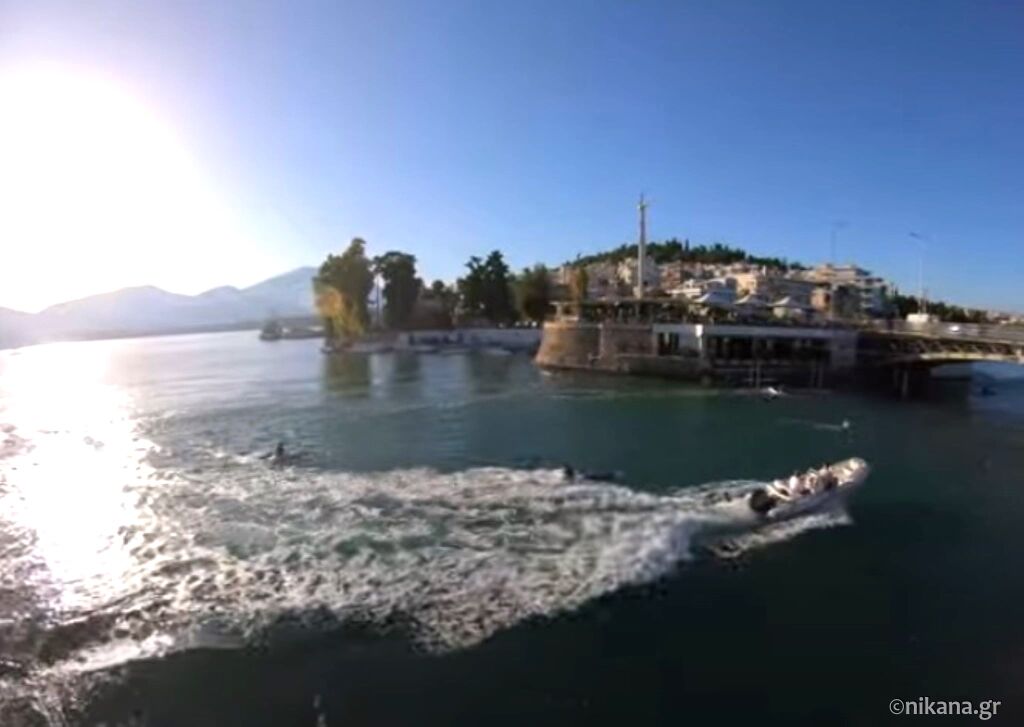The Mystery of the Tidal Currents of Halkida: A Unique Natural Phenomenon in Greece
In Halkida, on the island of Evia, only 80 kilometers from Athens, there is a unique natural phenomenon that has enchanted visitors for centuries - the so-called “crazy waters” in the Evripus Channel.
This narrow strait, only 39 meters wide and 8.5 meters deep, separates the island of Evia from the mainland, creating a natural stage for a spectacle that is rarely seen elsewhere in the world.
A Phenomenon Defying the Laws of Nature
This phenomenon manifests through unusual changes in the direction of sea currents four times a day, creating a cycle that fascinates observers and surprises scientists.
Over a period of 6 hours, the water flows north, then stops for 8 minutes. After this brief period of calm, the water changes direction and flows south, repeating this cycle throughout the day. This phenomenon occurs due to the gravitational influence of the Moon, creating a tidal rhythm with an additional touch of “mystery” characteristic of the Evripus strait.
Special Days of “Disorder”
Although this phenomenon usually operates in a fairly predictable rhythm, during four days in the lunar month - from the 7th to the 9th and from the 22nd to the 24th lunar day - what locals call “days of disorder” occur. During these days, currents can change up to 14 times, or even completely stop, adding to the mystique of this phenomenon.
Studied Through the Centuries - From Aristotle to the Present Day
Ancient philosophers, including Aristotle, studied this natural phenomenon, with Aristotle visiting Halkida to understand this phenomenon. Intrigued by this occurrence, Aristotle observed and documented the changes in currents, inspiring many scientists throughout history.
Legend has it that the channel was named after Euripus, a man who tried to solve the mystery of this phenomenon but tragically lost his life in the waters that refused to reveal their secrets.
In his work Phaedo, Plato uses the tide of Evripos as a metaphor for things that “go up and down,” describing the mindset of those who believe that nothing is constant or stable.
Thousands of years later, tourists, nature lovers, and adventurers come to Halkida, fascinated by the phenomenon unfolding before their eyes, much like in the days of ancient Greeks.
Explanation of the Phenomenon
Today, there are explanations, but not definitive ones that all scientists agree on.
Systematic observations show that the currents in the Evripos strait change every 6 hours during 22 to 23 days of each month, completing four rotations in 24 hours and 50 minutes. These regular currents typically last 11 to 12 days during the new moon, with irregularities on the remaining days during the full moon. Sometimes the cycle completes in 22 hours and 22 minutes, and during the remaining 6 or 7 days, the currents are irregular. The speed of the currents varies from 8 to 10 kilometers per hour, sometimes reaching 15 kilometers per hour.
The current is so strong that it “even makes it difficult for sharks to swim in the opposite direction.”
The tidal wave is caused by the gravitational attraction of the Moon and moves westward. When the wave enters the southern Euboean Gulf, it reaches the narrow Evripos passage 1 hour and 15 minutes before the wave from the northern gulf due to the shorter distance. This causes a rise in the water level in the southern part by 30 to 40 cm, creating a current flowing from south to north. After six hours, the wave from the northern gulf raises the water level in the northern part of the strait, changing the direction of the current.
During the full and new moon, the difference in water level between the northern and southern Euboean Gulf is greater, leading to stronger currents. The 22-hour and 22-minute period is explained by the shape of the coast. During the first and last quarter of the month, tides are weaker, and water movement becomes irregular due to the shaping of the coast, seabed, and wind direction.
Where to Best Observe this Mysterious Phenomenon?
The best place to observe this phenomenon is from the old bridge, which connects the island of Evia to the mainland, located at the narrowest part of the channel, where the water is only 38 meters wide.
The old bridge, still raised to allow boats to pass, offers a perfect view of the incredible play of nature that evokes admiration, and sometimes, confusion among observers and scientists alike.
The Power of Nature and the Beauty of Halkida
The current in Evripus can reach speeds of up to 12 kilometers per hour, and under the bridge, up to 15 km/h, which can be challenging for smaller boats, especially when whirlpools appear just before the water changes direction.
This spectacle, reflecting the power of nature, is an ideal opportunity for tourists and nature lovers to connect with something that transcends the ordinary.
In addition to the natural phenomenon, visitors to Halkida can enjoy picturesque landscapes, ancient buildings, and charming taverns that complete the authentic Greek experience.
A Unique Phenomenon in the World
While similar tidal phenomena can be seen in several places around the world, Evripus in Halkida is unique in its regularity and intensity of changes.
That is why this place is a must-visit for all those who want to experience something different and feel the magic of Greece through the spectacle that nature offers daily.
Share your photo impressions with us on social networks.
We are always here to help you explore Greece! Follow us for the latest information, useful tips and authentic experiences to spend an unforgettable vacation in Greece!
We offer over 3,000 accommodations. Choose the right one for you and your family HERE.
Follow us on social networks where we regularly share exclusive offers, discounts and special arrangements for vacations in Greece as well as information, advice and useful news.
Facebook:Nikana.gr
Instagram: @nikana.gr
Tiktok: nikana.gr
Facebook grupa: Live from Greece
YouTube kanal @NikanaTravel
Write to us at e-mail: nikana@nikana.gr
Our site nikana.gr is the leading source of information about Greece.











Post a Comment
NOTE
All your questions in the comments will receive an answer via email so check your inbox shortly after you posted comment. For more detailed questions and responses, contact us via mail nikana@nikana.gr.